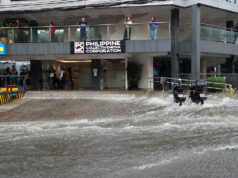
By Cezar John A. Estrada
RECENTLY, the Department of Energy (DoE) called for comments on the draft Qualified Third Party (QTP) Service Contract and Eligibility Requirement as per Department Circular No. DC2019-11-0015 “Prescribing Revised Guidelines for Qualified Third Party.” These draft issuances are supplemental documents to support the QTP Revised Guideline Policy which the DoE released on November 2019. The QTP Guideline Policy is an initiative that was prescribed in Republic Act No. 9136, otherwise known as the Electric Power Industry Reform Act of 2001, which shall assist the Distribution Utilities (DU) in ensuring and accelerating the total electrification of the country.
In the Philippines, based on data from the National Electrification Administration (NEA), as of September 2019 about 2 million households or about 10 million Filipinos still lack access to electricity, mostly in poor, remote, island locations considered unviable for electricity service by most DUs. Filipinos in these areas are deprived of further development of their quality of life partly because of the lack of electricity.
The Qualified Third-Party Policy is one of the initiatives which can help achieve the goal of total electrification in the country. As stated in the Policy, the provision of electric service in remote and unviable areas which DUs are unable to provide services for any reason shall be opened to qualified third parties. QTPs are private corporations which aim to assist the government attain 100% national electrification.
The QTP Guidelines Policy was originally issued in 2004 and 2005, but as of 2018, based from the NEA statements, only 11 areas out of the 995 areas opened for alternative service providers have QTP takers. This number is rather alarming, and this just means that private entities are either not interested in serving those areas or they are finding it hard to apply for participation.
Before the QTP Revised Guideline issuances of the DoE last November, the DoE was the mandated entity to declare, assess, and select the QTPs to serve a particular area. In all those years that the Policy had been in place, very few private corporations were enticed to engage and help assist the government in electrifying neglected areas. This implies that there may be issues that private corporations are facing or holding them back from pursuing this endeavor.
Existing and prospective QTPs have voiced their concerns during the public hearing and consultations conducted by either the Senate Committee on Energy, the DoE, or other government bodies on why they were not able to assist in electrifying the whole country. Most of the issues, as stated by the QTPs, are about the existing processes, procedures, and the those which the existing guidelines failed to provide. Private corporations are risk-takers, but such risks must be leveled and protected by government issuances. Putting all the risk on private corporations is rather unfair, given that total electrification targets are government goals.
As such, we must ensure that appropriate guidelines are in place to ensure that the Filipino people are not deprived of their right to access to electricity, and, at the same time, protect the private corporations. In the recent issuance and draft supplemental documents that the DoE released, there are still a lot of questions that must be answered.
First is the need for complete and clear guidelines with regards to the turn-over of operations of the QTPs after the contract term. In the signed policy and draft supplemental service contract released by the DoE, they were not able to provide clear guidelines on what will happen at the end of the contract term and the transitory activities. These additional guidelines are very relevant since they will dictate if the QTP, before the end of the contract term, will continue to develop the area, or hold its development since there are no clear guidelines on if they will still be paid for such development, will be able to extend the contract in order to fully develop the area, or what will happen to the people that they have employed. Also, since there is a possibility that their facilities will be turned over to the DU, which is highly regulated, it creates more risk for the QTP given that payment and its schedule may still be subject to approval from the Energy Regulatory Commission.
Those uncertainties might have been holding back private corporations from becoming QTPs.
The second concern that must be resolved is the penalties and fees that the DU may get from non-compliance by the QTP with its contract. The concern here is that DUs who have waived the QTP areas and left its plans to the QTP, may possibly get money from this agreement because of possible failures of the QTP. In this scenario, DUs will not suffer from the failure of the QTP to deliver — it is the Filipinos who live in the unserved areas. Given this, it must be ensured that penalties or fees received by the DU as a result of non-compliance of the QTP with the service contract be declared by the DU, to either the DoE or the ERC, and be used for the benefit of the end-users under the QTP area. This amount can either be used to lower electricity tariffs or as a refund to the affected end-users in the QTP area.
Lastly, with the open and competitive approach of the process for selecting the private corporation which will become the QTP, mandatory compliance must be set by the government in order to prevent any delay to the total electrification and prevent any monopolies holding QTP areas. Any events for termination as set forth in the contracts signed by the parties involved must be implemented with utmost diligence. We must ensure that incompetence will be dealt with, and that no possible corruption will happen.
With the urgency of ensuring that every Filipino has access to electricity and that they are lifted from energy poverty, we must urge the Government to ensure that appropriate, clear, and fair policies are released. This will benefit the people to pursue socio-economic development, poverty eradication, and improving their access to education, health services, and livelihood opportunities.
Cezar John A. Estrada is with Policy Research and Development of WeGen Distributed Energy Philippines, Ortigas Center.



